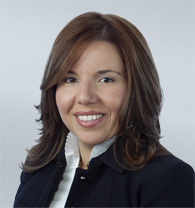
I still remember the moment I knew I wanted to be a lawyer. Three years after my family moved here from Puerto Rico in search of a better opportunity, I read Atticus Finch’s closing argument in To Kill a Mockingbird for the first time:
We know that all men are not created equal in the sense that some people would have us believe. . . . But there is one way in this country in which all men are created equal. An institution that makes a pauper the equal of a Rockefeller, the ignorant man the equal of any president, and the stupid man the equal of Einstein. That institution is the court.
After hearing Atticus Finch eloquently and powerfully explain it was our judicial system that gave meaning to Thomas Jefferson’s immortal words “all men are created equal,” I knew I was destined for law school.
For some of us, however, the idealism that led us to law school faded somewhere between graduation and the time the reality of practicing law set in. With the practice of law came billable hours, the difficulty of meeting clients’ demands, developing a book of business, and hopes of partnership. Add in the stress of juggling professional obligations with family needs, and I’ll confess that Atticus Finch’s stirring words were a distant thought that hadn’t crossed my mind in years. It became easier to forget what first convinced me to become a lawyer.
Yet, as I read more and more about the crisis at our southern border, the stories stir in me that idealism from my youth. In a way, the unaccompanied minors remind me of Tom Robinson in To Kill a Mockingbird. They are vilified by some—hopefully a small minority—because they look different. Worse, they are defenseless and voiceless. Unlike most criminal defendants, they don’t have a right to an attorney. Although many of the unaccompanied minors may be eligible for asylum or visas for victims of trafficking or other criminal activity, few may get that relief without competent counsel, which means they will be returned to countries where they are not safe.
That is why, in keeping with Chief Judge Menendez’s administrative order on pro bono service, our section members (individually or collectively) should work to ensure that the unaccompanied minors living in the Tampa Bay area (twenty-nine at last count) have adequate legal representation. During our section’s kick-off luncheon, Adriana Dinis and Sophia Lynn highlighted the overwhelming need in our community for members of our immigration bar to volunteer their time and talents to help the unaccompanied minors.
I sincerely hope you join me in that worthy cause. Only you can ensure “all men are created equal.” Only you can make an unaccompanied minor the equal of a Bill Gates. To paraphrase Atticus Finch, our immigration system is only as sound as its immigration bar, and the immigration bar is only as sound as the lawyers who make it up.
For more information, please contact Maria del Carmen Ramos at 813.227.2252 or mramos@slk-law.com.
Originally posted in Lawyer Magazine Online Edition, Hillsborough County Bar Association. The Lawyer magazine is an award-winning legal publication produced by the Hillsborough County Bar Association. Submissions cover current trends and cases that are at the forefront of legal discussions, as well as local legal events. This blog includes submissions from the magazine as well as other items that are of keen interest to the legal community in the Tampa Bay area, Florida, and beyond.
